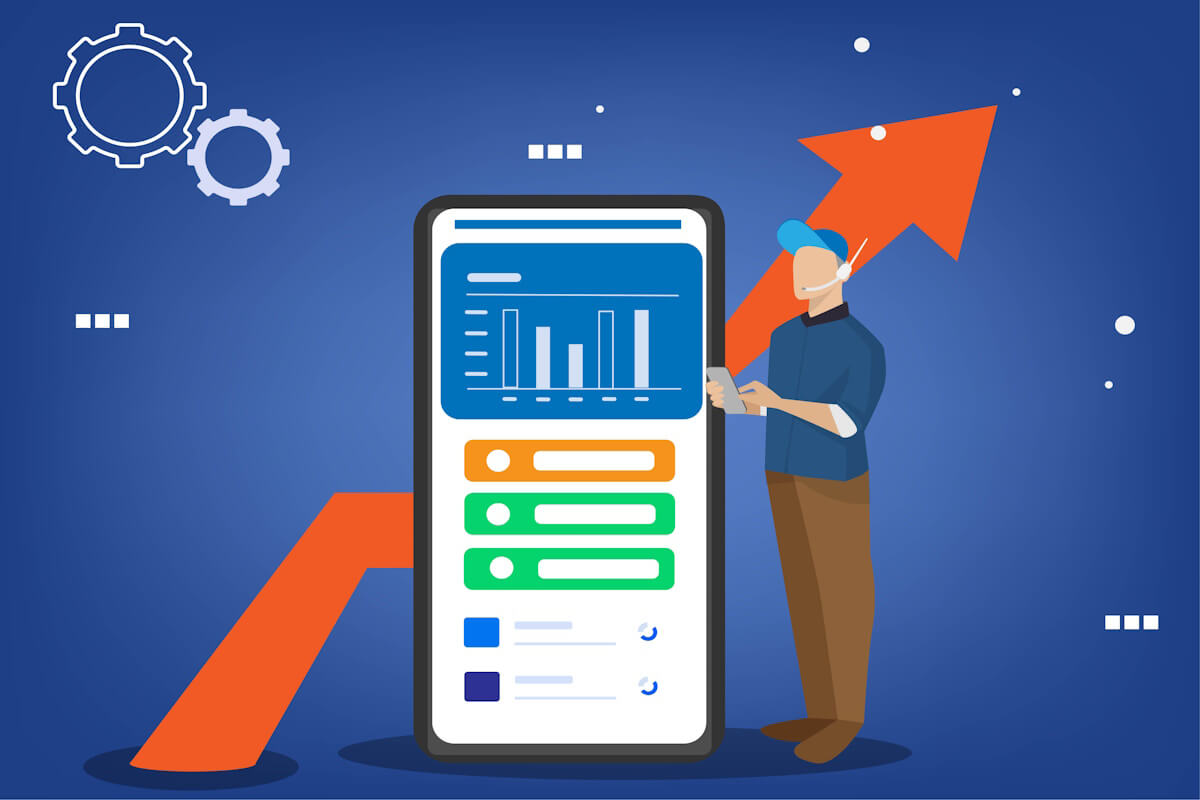In today’s fast-paced digital world, having a well-performing mobile app is crucial for success. Users expect apps to load quickly, run smoothly, and provide a seamless experience. If your app is slow or crashes frequently, you risk losing users and damaging your brand reputation. In this article, we will discuss some key strategies for optimizing your mobile app for performance.
1. Choose the Right Development Tools
Selecting the appropriate development tools is the first step in optimizing your mobile app for performance. Ensure that you are using a reliable mobile app development platform that provides robust performance monitoring and optimization features. Tools such as Android Studio and Xcode can assist you in identifying performance bottlenecks and optimizing your app for speed and efficiency.
- Utilize tools that offer real-time performance monitoring to track and analyze your app’s behavior.
- Take advantage of profiling tools to identify areas of improvement in your app’s codebase.
- Consider using cloud-based development platforms to streamline collaboration and enhance overall development efficiency.
2. Optimize Images and Media
Large image and media files are a common culprit for slow-loading mobile apps. To enhance app performance, it is essential to optimize all images and media files before integrating them into your app. Employ image compression tools and formats like WebP to reduce file sizes without compromising quality. Additionally, consider implementing lazy loading techniques to improve loading times and decrease data usage.
- Use responsive images to ensure that images are displayed correctly on different screen sizes.
- Implement image lazy loading to defer the loading of non-critical images until they are needed.
- Leverage modern image formats such as AVIF and JPEG 2000 for improved compression and quality.
3. Minimize Network Requests
Excessive network requests can hinder your mobile app’s performance and impact the user experience. To optimize performance, reduce the number of network requests your app makes. Consolidate multiple requests into one, cache data locally, and employ prefetching to load content proactively. Additionally, consider utilizing a content delivery network (CDN) to deliver static assets efficiently and reduce latency.
- Implement HTTP/2 or HTTP/3 protocols to enable faster and more efficient data transmission.
- Utilize caching mechanisms like browser caching and server-side caching to store frequently accessed data.
- Employ data compression techniques such as GZIP or Brotli to reduce the size of data transferred over the network.
4. Implement Efficient Code
Well-structured and efficient code is paramount for optimizing mobile app performance. Avoid unnecessary libraries and dependencies that can increase app size and slow down execution. Optimize your code for speed and efficiency, and leverage performance profiling tools to identify and rectify any bottlenecks. Additionally, consider incorporating code splitting and tree shaking to minimize the size of your app bundle.
- Implement lazy loading for JavaScript modules to load code only when needed, reducing initial load times.
- Utilize minification and obfuscation techniques to reduce the size of your codebase and enhance performance.
- Regularly conduct code reviews and refactor legacy code to maintain a clean and efficient codebase.
5. Optimize Battery Usage
Mobile apps that drain the device’s battery quickly can lead to user dissatisfaction. To optimize performance, mitigate the app’s impact on the device’s battery. Avoid running continuous background processes, optimize CPU and GPU usage, and integrate power-saving functionalities like Doze mode on Android and Low Power Mode on iOS. Additionally, use push notifications and background syncing judiciously to minimize battery consumption.
- Implement background task limitations to prevent unnecessary battery drain caused by background processes.
- Utilize advanced battery optimization techniques provided by the operating system to maximize battery life.
- Opt for asynchronous operations to reduce the strain on the device’s resources and improve battery efficiency.
6. Test and Monitor Performance
After optimizing your mobile app for performance, it is essential to regularly test and monitor its performance. Employ mobile app testing tools like Firebase Test Lab and AWS Device Farm to identify any performance issues across various devices and network conditions. Monitor key performance metrics such as app load time, response time, and CPU usage using tools like Firebase Performance Monitoring and New Relic.
- Conduct performance testing under varying network conditions to simulate real-world scenarios.
- Utilize A/B testing to compare the performance of different app versions and determine the most effective optimizations.
- Implement continuous integration and delivery practices to automate the testing and deployment of performance improvements.
By following these strategies for optimizing your mobile app for performance, you can ensure a seamless and responsive user experience that keeps users engaged and satisfied. Remember, a well-performing app not only boosts user retention and satisfaction but also enhances your brand reputation and ultimately drives business success.
Have questions about mobile app performance optimization? Our blog is just the beginning. We offer a wealth of resources and expertise to help you achieve peak app performance. Contact us to learn more!
FAQs:
1. What is the first step in optimizing a mobile app for performance?
- The first step in optimizing a mobile app for performance is to choose the right development tools that offer robust performance monitoring and optimization features.
2. How can images and media files be optimized to improve app performance?
- Images and media files can be optimized by using image compression tools, formats like WebP, and lazy loading images to reduce file sizes without compromising quality.
3. How can network requests be minimized to optimize mobile app performance?
- Network requests can be minimized by combining multiple requests into one, caching data locally, using prefetching to load content in advance, and utilizing a content delivery network (CDN) to serve static assets.
4. Why is implementing efficient code important for optimizing mobile app performance?
- Implementing efficient code is important for optimizing mobile app performance as it helps in reducing app size, improving speed and efficiency, and identifying and fixing any bottlenecks using performance profiling tools.



+ There are no comments
Add yours